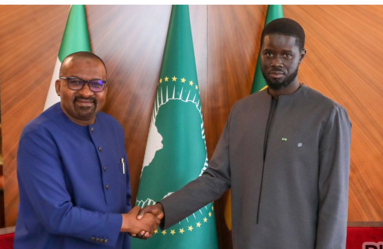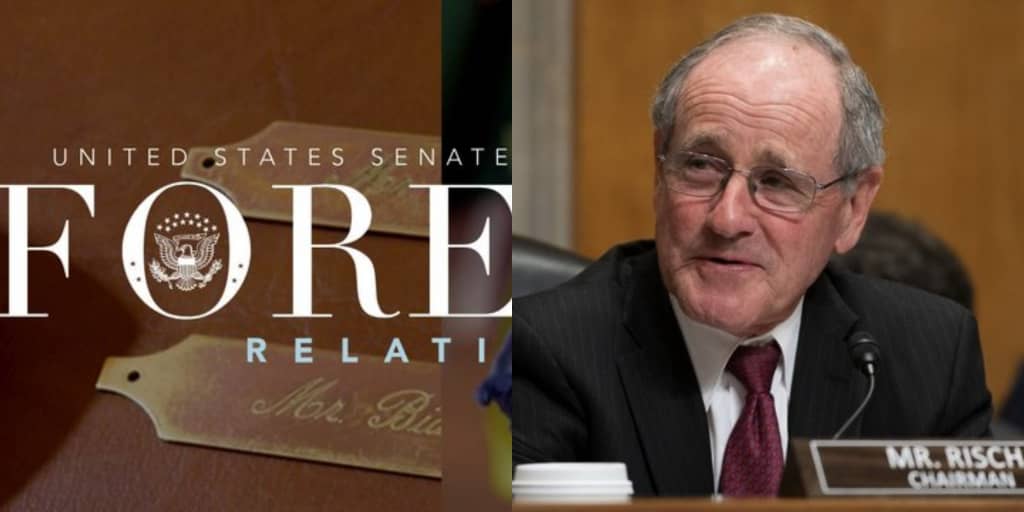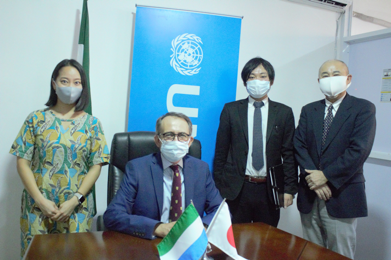
Press release
For immediate release: 29 January 2021
UNOPS signed a new agreement with the Government of Japan to increase accessibility to public services and enhance economic growth in underserved rural communities Enhancing the Impact of Rural Renewable Energy in Sierra Leone
Freetown, Sierra Leone – On 27 January 2021, The United Nations Office for Project Services (UNOPS) signed a new project agreement with the Government of Japan in Freetown, Sierra Leone, which will provide financial support of USD 3,555,271 for the project titled ‘Enhancing the Impact of Rural Renewable Energy in Sierra Leone’.
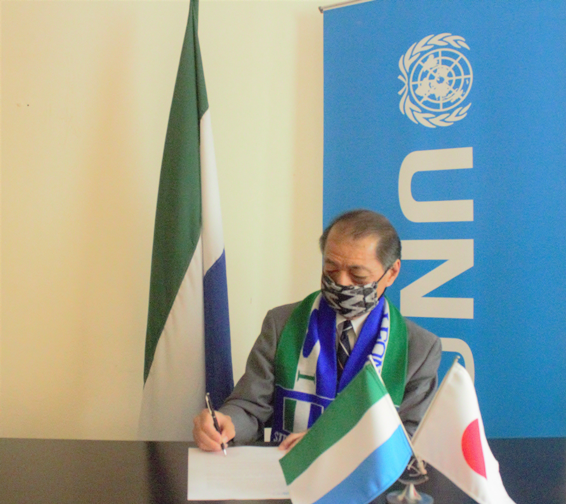
The project agreement signed by H.E HIMENO Tsutomu, Ambassador Extraordinary andPlenipotentiary of Japan to the Republic of Sierra Leone and Nick Gardner, UNOPS Country Manager, aims to increase electricity accessibility to public services and enhance economic growth in underserved rural communities. The project will run for 2 years 6 months to implement the construction of 6 solar photovoltaic (PV) mini-grids in Bo district, Southern Province of Sierra Leone.
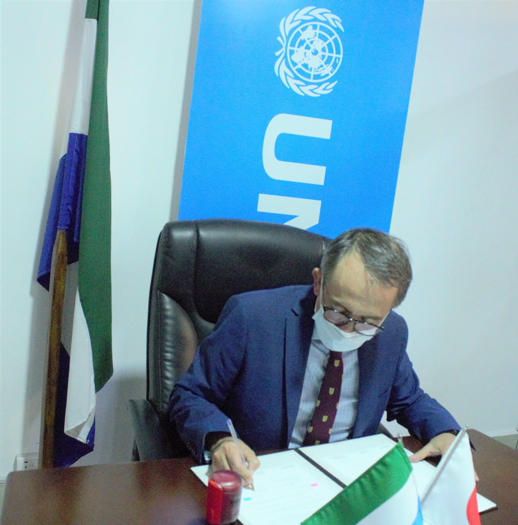
Manager
The rural communities are:
● Naiagolehun
● Petewoma
● Serabu
● Grima Tikonko
● Upper Saama
● Lower Saama
The selected sites are in locations supported by other Japan-funded projects and where improvements in access to electricity will enhance Japan’s contributions further. The project targets 15,647 beneficiaries and aims to expand energy access to remote villages, leading to improved
development outcomes in health, education and economic development to beneficiary communities. This will enable reliable, clean and affordable electricity and in turn improve social, economic and health benefits to rural communities. Community Health Centers (CHCs) will receive up to 6.6 kWh/day of free electricity. Providing electricity access to isolated communities will result in improved economic benefits, reducing the relative cost of energy access by eliminating the expense of alternative sources, such as batteries and kerosine, and will reduce or eliminate the cost of diesel generators for energy reliant businesses.
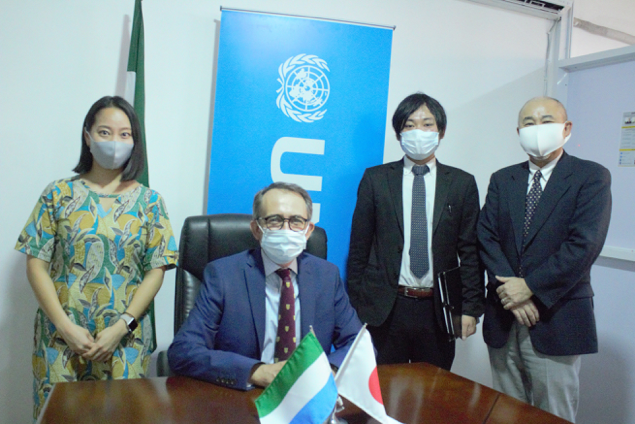
UNOPS will implement the project on behalf of the Ministry of Energy (MoE), the contracting authority. The project is in support of the Ministry’s objective of increasing access to electricity in rural communities, exploring a variety of alternative sources of renewable energy. It is envisioned that the project will contribute to the Government’s Sustainable Development Goals (SDGs) addressing multiple development initiatives. Furthermore, the project will enhance partnerships between public, private and social sector stakeholders to address poverty reduction, and encourage the participation of the private sector in the provision of commercially viable energy services in rural communities. ENDS
Source: OWL Press


